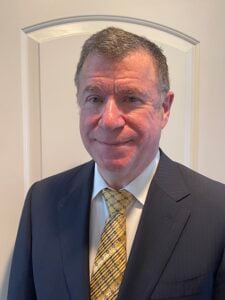As you know, I’ve often written about the positive experiences that top athletes are having with Platelet Rich Plasma (PRP) Therapy. Stars including Kobe Bryant, Peyton Manning, Steph Curry, Rafael Nadal, David Ortiz, Vijay Singh and, most recently, NBA forward D’Angelo Russell. Perhaps, as a regular person reading about the results, you’re a bit skeptical. Thinking that their super-powered physical conditions make them more receptive to a “miracle” treatment. Wondering if PRP also works for mere mortals like you and me.
A few months back, a small pilot study appeared in PLOS ONE, a non-profit publication featuring peer-reviewed scientific research. It found that a single PRP injection helped reduce pain and heal injured tissue in patients with chronically sore shoulders caused by rotator cuff tears.
In addition to these benefits, keep in mind that this fast, non-invasive, in-patient procedure also helped these people avoid the anxiety and ordeal of undergoing surgery, not to mention the extended recovery process.
The simple PRP procedure involved harvesting platelets from the patient’s own blood. Blood is made up of red and white blood cells, plasma, and platelets. Following an injury, platelets in our bodies are activated and release healing proteins called growth factors, which help to speed up wound and tissue healing. By delivering a higher concentration of these platelets directly into an area of need, the natural healing process is intensified. Doctors are able to get the PRP from blood quickly, easily and safely. There is virtually no risk of a transmissible infection and a low risk of allergic reaction.
And, yes, the PRP patients in the study were “regular” people
One was a retired police officer, who claimed she had spent two years trying everything for her shoulder. “Physio would help for a bit but then the problem would still be there. I tried acupuncture, Kinesio tape, cortisol injections – you name it, I tried it,” she explained.
“Once I did the PRP Therapy, it really did fix everything!” At age 58, she says her injured shoulder feels like new. “I can shoulder-check now and brush my hair. I can work out and be active again!”
According to the lead author of the study – a sports medicine physician at the University of Alberta’s Glen Sather Sports Medicine Clinic in Canada: “We studied patients 35 to 60 years old with rotator cuff tendinopathy due to normal aging. For the first time, we were able to not only find reported improvements in pain and mobility, but also in the tissue. The MRI before and after showed structural change and a decrease in the size of tears.”
The results were very real
“We saw improvements in the tissue six months later in five of seven patients undergoing the PRP procedure and an appropriate rehabilitation program. The healing in the tissue appeared to correspond with the reported improvement of the pain and, also with the clinical assessment of function,” added a physical therapy specialist at the Faculty of Rehabilitation Medicine.
As a pain management specialist, I am very pleased to see these positive reports. They support the benefits that the doctors at NJ Pain Care Specialists are already achieving when they use PRP Therapy to treat other painful conditions, including tennis elbow, knee pain, Achilles injuries, degenerative disc disease, and sports or overuse injuries.
Is PRP Therapy right for you? Contact our nearest office today and speak with a caring and knowledgeable staffer to learn more.
